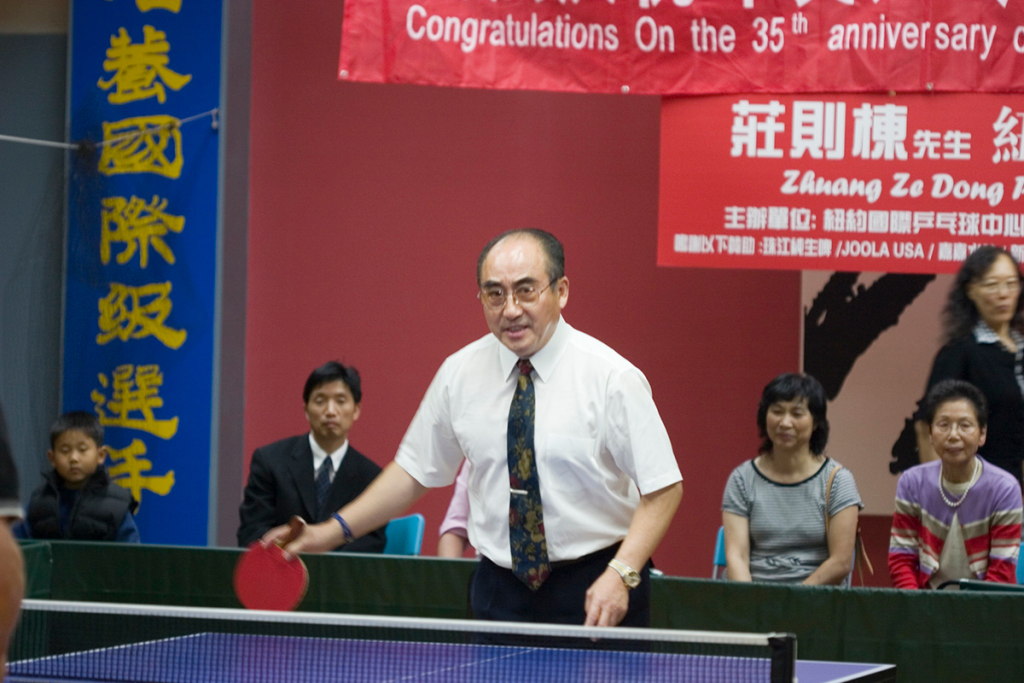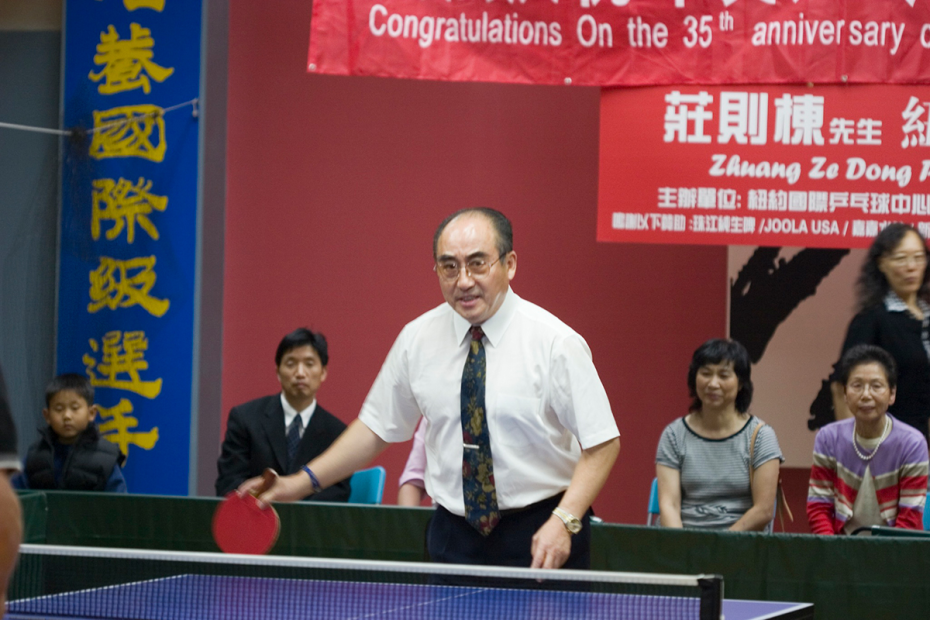
(Photo: Tom Nguyen from Rockville, MD, CC BY 2.0, via Wikimedia Commons)
Zhuang Zedong, the Chinese ping pong champion, has just died. He sought out and met his American counterpart, Glenn Cowan during a visit to America in 1971. Zhuang was an important private diplomat for Mao’s China, and after this meeting the U.S. Team, including Cowan, was invited to compete in China. This was unprecedented as there had been no diplomatic relations between the U.S. and China since Mao took over in 1949. And of course the Korean War severely exacerbated the already tense relations between the two superpowers.
The U.S. lost the Beijing matches but the seed was sewn. A year later, Nixon went to China, and slowly the rapprochement began. John Adams even wrote an opera about it. With all the State Department wrangling between Chairman Mao, Zhou En Lai, Nixon, and Kissinger it was a ping pong match that opened the doors. Glenn Cowan died several years ago. We should acknowledge these two table tennis stars and their place in history. Certainly no one could have predicted that China would emerge as the superpower it is today back in 1971, when Zhuang Zedong and Glenn Cowan first became friends and fought out a friendly ping pong match as the world watched.
Dennis Rodman has recently been in North Korea meeting with his fan Kim Jong Un. The young North Korean leader snubbed an official U.S. State Dept, but was all over his Chicago Bulls hero. Truth is often stranger than fiction. But there is no doubt that ping pong did more than Dennis Rodman will ever do.
Here is Zhuang Zedong playing Japan in the world championship finals in 1971:
*Editor’s note: This post was updated with a new image and links on September 26, 2025.
